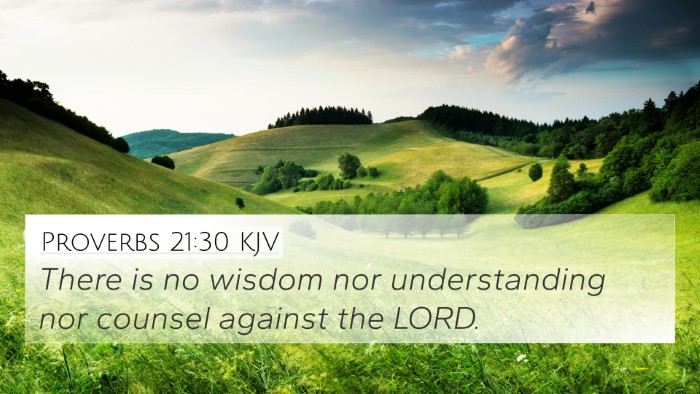Understanding 2 Kings 18:20
Bible Verse: 2 Kings 18:20
Verse: "You say, 'But they are only empty words. I have plans to get rid of you and your enemies, and make you king over them.'
Summary of Meaning
The context of 2 Kings 18:20 involves the Assyrian king Sennacherib's taunts against King Hezekiah of Judah. When Sennacherib sends representatives to intimidate Hezekiah, he uses this line to question the validity of Hezekiah's reliance on God. This verse highlights themes of faith versus doubt, and the pressure leaders face in times of crisis.
Commentary Insights
-
Matthew Henry:
Henry notes that Sennacherib's words are designed to undermine Hezekiah's faith. By pointing out that Hezekiah relies on mere promises, the Assyrian king attempts to sow doubt. Henry emphasizes the importance of steadfast faith in God's promises during dire circumstances.
-
Albert Barnes:
Barnes discusses how Sennacherib uses sarcastic rhetoric to belittle Judah's confidence. He underscores the pressure of a formidable enemy and the challenge of remaining faithful in the face of overwhelming odds. This reflects the broader theme of reliance upon God amidst external threats.
-
Adam Clarke:
Clarke analyzes the implications of Hezekiah's predicament, illustrating that Sennacherib's mocking serves a dual purpose: to destabilize Hezekiah and to boast of Assyria's past victories. Clarke suggests that understanding this context amplifies the faithful response Judah must maintain.
Connections to Other Bible Verses
2 Kings 18:20 can be understood better through various Bible verse connections. Here are some verses that relate to its themes:
- Isaiah 36:4-10: This passage presents Sennacherib's challenge directly to Hezekiah and mirrors the intimidation expressed in 2 Kings 18:20.
- Psalms 46:1-3: A declaration of God as refuge and strength, contrasting Sennacherib’s empty threats.
- Isaiah 37:14-20: Hezekiah's prayer for deliverance exemplifies a faithful response to Sennacherib's mockery.
- Romans 8:31: Paul teaches that if God is for us, who can be against us? This encourages believers facing opposition.
- Ephesians 6:10-11: The armor of God represents the spiritual warfare that can align with Hezekiah’s battle of faith.
- Psalm 20:7: "Some trust in chariots and some in horses, but we trust in the name of the Lord our God," illustrating the faith dynamic against earthly power.
- 1 Peter 5:8: Cautions about the adversary akin to Sennacherib's threats—serving to amplify the need for vigilance and faithfulness.
Faith in the Face of Opposition
The verse serves as a reminder for individuals facing trials, challenges, or ridicule for their faith. It shows that while opponents may belittle their reliance on God, the faithful must hold firmly to their trust in divine protection and guidance.
Tools for Further Study
For individuals interested in cross-referencing Biblical texts, several resources can enhance study:
- Bible Concordance: A tool that lists words found in the Bible and their locations.
- Bible Cross-Reference Guide: Guides that help find related passages across scriptures.
- Cross-Reference Bible Study: Methods and systems to explore how different verses interact thematically or contextually.
- Bible Reference Resources: Compilations of related text for theological studies.
Conclusion
In summary, 2 Kings 18:20 encapsulates the struggle between faith and fear. The taunts of Sennacherib resonate through time, challenging believers to maintain their faith in God despite worldly pressures. The insights from commentaries and related verses provide a rich tapestry for understanding not only this passage but the broader principle of hope and reliance upon God amidst adversity.



